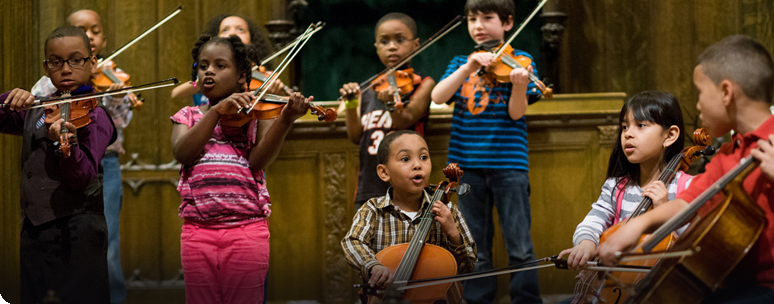This summer, I had the opportunity to teach and coach chamber music at the Apple Hill Center for Chamber Music in the town of Sullivan, New Hampshire. Just two hours from Rhode Island, Sullivan lies amongst the trees, hills and wildlife approximately ten miles northwest of Keene, NH, the closest town. The festival takes place every summer on a dramatically beautiful campus—the converted farmland boasts colorful flower gardens, an old-world gazebo nestling in the trees, a 1780 farmhouse which hosts the administrative offices and a red-roofed barn used as the concert hall. The festival, for chamber music enthusiasts of all ages, abilities and backgrounds, runs from mid June to mid August, in five ten-day blocks.
Apple Hill is, in many ways, an experiment in social and musical communication. What happens when this astonishingly diverse group of people are brought together to live, eat and play together? Here it is common to see two hotshot 13-year-old violinists and two 65-year-old adult amateurs learning a Beethoven string quartet, or two participants from conflicting countries and cultures working on a Schubert four-hands piano piece. The results continue to come in beautifully year after year. Lines that are sometimes sharply drawn in our world blur and eventually dissolve over each session. Lifelong friends are made across these lines in the most organic way.
Playing chamber music is the perfect vehicle for learning to listen to others, knowing when to step up and be a leader, when to follow without compromising oneself. Sports teams can still occasionally excel and win championships with selfish egomaniacs onboard (the L.A. Lakers and Kobe Bryant?)—but the chamber music process simply cannot work unless the musical work is placed above the individuals playing it. Composers often invest their most personal thoughts and ideas in their chamber works. Thus, while Apple Hillers are putting together transcendent works of Mozart, Messiaen and Mendelssohn, they are experiencing deep artistic, emotional and social growth.
Coupled with this is an entirely supportive atmosphere. Artistic and technical excellence is encouraged in the coachings, which happen four times daily in one and a half hour blocks. In the weekend performances, communication, creativity and joy are the performance goals. If a group happens to hit all the notes, that is gravy! No matter what happens, each group and each participant are cheered as boisterously as if they just aced a performance at Carnegie Hall.
Since I did not have to practice this summer at Apple Hill due to an injured shoulder, I had a lot more time to simply observe and contemplate this wonderful kibbutz of a festival. I think it is extraordinary and one of the most powerful venues for artistic and human growth that I have had the privilege to be a part of. If you play an instrument professionally, are a devoted amateur or have only been playing for a couple of years and are just starting your musical journey, there is a place for you up here. Even if you don’t play an instrument, you will be cherished as a valued member of one of the most attentive audiences around! Don’t miss out on a visit to Apple Hill some summer—undertaking the scenic two hour road trip from Rhode Island will yield rich rewards…
-Jesse Holstein, PSQ
